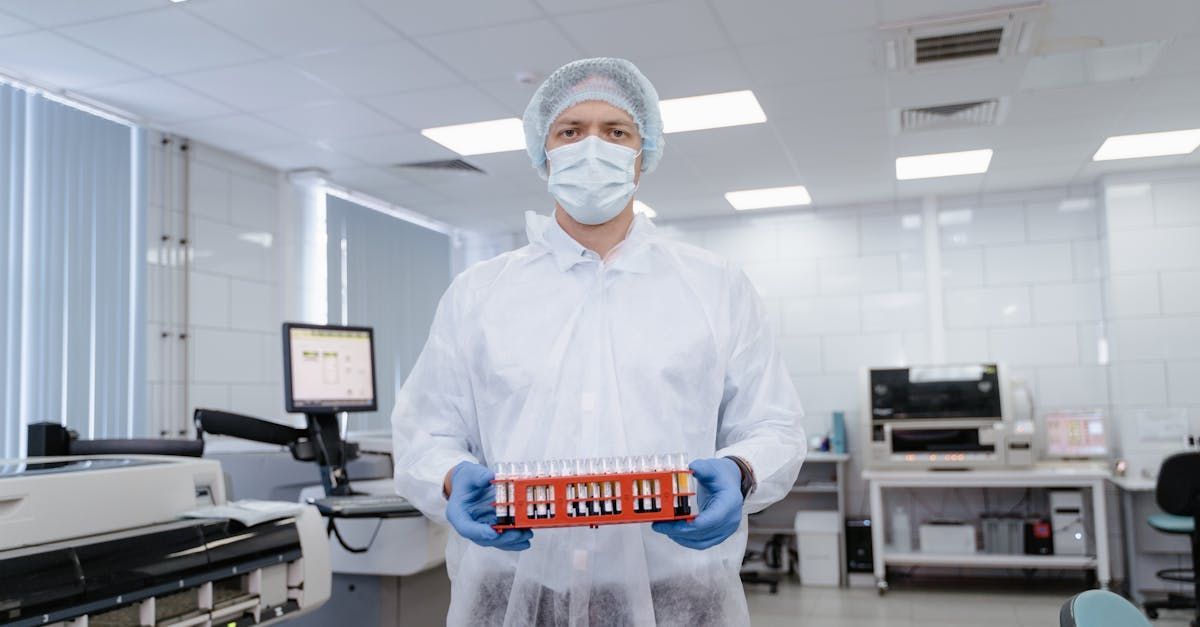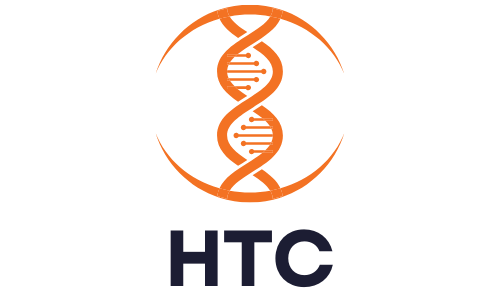The Role of HealthTech in Precision Surgery
Precision surgery, a cutting-edge approach in modern healthcare, represents a transformative advancement in surgical procedures. By utilizing advanced technologies and techniques, precision surgery aims to enhance the accuracy, efficiency, and outcomes of surgical interventions. The significance of precision surgery lies in its potential to minimize risks, reduce recovery times, and improve patient outcomes, thereby setting new standards in surgical care.
The integration of HealthTech into precision surgery has been a game-changer. HealthTech encompasses a wide range of technologies, including robotics, imaging systems, artificial intelligence (AI), and augmented reality (AR), all of which contribute to the precision and effectiveness of surgical procedures. The purpose of this blog is to explore how HealthTech is advancing precision surgery and to highlight the investment opportunities that this innovative field presents.
Precision surgery is defined as surgical procedures that are performed with an exceptionally high degree of accuracy and control. This approach often involves the use of advanced technologies to guide surgical instruments and monitor patient conditions in real-time. The scope of precision surgery covers various medical fields, including oncology, orthopedics, neurology, and cardiology, among others.
The historical context of precision surgery traces back to the evolution of surgical techniques. Traditional surgery relied heavily on the surgeon's skill and experience. However, the advent of minimally invasive techniques marked a significant shift towards precision. The introduction of laparoscopic surgery in the late 20th century allowed for smaller incisions and more precise maneuvers, reducing patient trauma and speeding up recovery times.
The rise of precision surgery has been driven by the need for reduced risk, faster recovery, and improved outcomes. Traditional surgical methods often involved larger incisions, leading to increased pain, longer hospital stays, and higher risks of complications. Precision surgery addresses these issues by enabling surgeons to operate with greater accuracy, resulting in fewer complications and better patient experiences.
Key HealthTech Innovations in Precision Surgery
The advancement of precision surgery has been significantly bolstered by several notable HealthTech innovations. These technologies have revolutionized surgical procedures, making them safer, more efficient, and more effective.
Robotic Surgery
Robotic surgery is one of the most prominent HealthTech innovations in precision surgery. Robotic surgical systems, such as the da Vinci Surgical System, provide enhanced precision and control during procedures. Surgeons operate robotic arms through a console, which translates their movements into precise actions on the patient. This technology allows for greater dexterity and stability, reducing the likelihood of human error.
Imaging Technologies
Advanced imaging technologies play a crucial role in precision surgery by providing detailed visualizations of the surgical site. Techniques such as MRI, CT scans, and intraoperative imaging enable surgeons to see intricate structures and navigate complex anatomy with confidence. These imaging modalities improve the accuracy of surgical interventions and help in planning complex procedures.
AI and Machine Learning
Artificial intelligence and machine learning have become integral to precision surgery. AI algorithms can analyze vast amounts of data to predict outcomes, guide surgical decisions, and optimize treatment plans. Machine learning models can assist in identifying patterns and anomalies in patient data, enhancing the accuracy of diagnoses and treatment strategies. Decision support systems powered by AI provide surgeons with real-time insights and recommendations during procedures.
Augmented Reality (AR) and Virtual Reality (VR)
AR and VR technologies are transforming surgical training and intraoperative guidance. AR overlays digital information onto the surgeon's view, providing real-time data and visual aids during surgery. This technology enhances spatial awareness and helps surgeons navigate complex procedures. VR, on the other hand, is used for immersive surgical training, allowing surgeons to practice techniques in a simulated environment before performing them on patients.
Case Studies of Precision Surgery
To illustrate the impact of HealthTech innovations on precision surgery, we will examine notable case studies that highlight the effectiveness and benefits of these technologies.
Robotic-Assisted Surgery for Prostate Cancer
Robotic-assisted surgery has been widely adopted in the treatment of prostate cancer. The da Vinci Surgical System, for example, allows surgeons to perform prostatectomies with unparalleled precision. Studies have shown that robotic-assisted prostatectomies result in less blood loss, shorter hospital stays, and quicker recovery times compared to traditional open surgery. The precision of robotic instruments enables surgeons to preserve surrounding tissues and nerves, leading to improved post-operative outcomes.
AI-Driven Surgical Planning in Orthopedic Surgery
In orthopedic surgery, AI-driven surgical planning has revolutionized procedures such as joint replacements. AI algorithms analyze patient-specific data, including imaging and biomechanical information, to create personalized surgical plans. This approach ensures that implants are positioned accurately, reducing the risk of complications and improving the longevity of the implants. AI-driven surgical planning has been particularly beneficial in complex cases where precise alignment is critical for successful outcomes.
AR-Guided Complex Neurosurgery
Augmented reality has made significant strides in complex neurosurgery. Surgeons can use AR headsets to overlay critical information, such as anatomical structures and surgical pathways, onto the patient's anatomy during surgery. This technology enhances spatial awareness and helps surgeons navigate intricate brain structures with precision. AR-guided neurosurgery has shown promising results in reducing surgical risks and improving patient outcomes in cases of brain tumors and vascular malformations.
Benefits of HealthTech in Precision Surgery
The integration of HealthTech into precision surgery offers numerous benefits that enhance patient care and surgical outcomes.
Improved Accuracy and Outcomes
HealthTech innovations, such as robotic surgery and advanced imaging, improve the accuracy of surgical procedures. Surgeons can operate with greater precision, reducing the risk of errors and complications. The enhanced accuracy leads to better patient outcomes, including faster recovery times and reduced post-operative pain.
Enhanced Patient Safety and Reduced Risk of Complications
The use of HealthTech in precision surgery enhances patient safety by minimizing the invasiveness of procedures. Smaller incisions and targeted interventions reduce the risk of infections, blood loss, and other complications. Additionally, real-time monitoring and decision support systems powered by AI help surgeons make informed choices, further reducing the likelihood of adverse events.
Shorter Recovery Times and Improved Patient Satisfaction
Patients undergoing precision surgery often experience shorter recovery times compared to traditional surgery. Minimally invasive techniques result in less trauma to the body, allowing patients to return to their normal activities sooner. Improved recovery times contribute to higher patient satisfaction and overall better quality of life.
Cost Savings and Resource Optimization in Surgical Care
While the initial investment in HealthTech innovations may be significant, the long-term cost savings are substantial. Precision surgery reduces the need for prolonged hospital stays, lowers the risk of complications, and minimizes the need for additional surgeries. These factors contribute to overall cost savings for healthcare systems and optimize the use of medical resources.
Challenges and Risks
Despite the numerous benefits, the adoption of HealthTech in precision surgery also presents several challenges and risks that need to be addressed.
Technical and Operational Challenges
Implementing HealthTech innovations in surgical settings requires significant technical expertise and infrastructure. Surgeons and medical staff need to be trained in using new technologies, and healthcare facilities must invest in the necessary equipment. Additionally, the integration of HealthTech systems into existing workflows can be complex and may require substantial adjustments.
Regulatory and Compliance Hurdles
The adoption of HealthTech in precision surgery is subject to stringent regulatory requirements. Ensuring compliance with regulations related to patient safety, data privacy, and device approval can be challenging. Navigating the regulatory landscape requires collaboration between HealthTech companies, healthcare providers, and regulatory bodies to ensure that innovations meet the necessary standards.
Cost and Accessibility Issues
The high cost of HealthTech innovations can be a barrier to widespread adoption, particularly in resource-constrained settings. Healthcare facilities may face financial challenges in acquiring and maintaining advanced surgical technologies. Ensuring equitable access to precision surgery requires addressing cost barriers and implementing strategies to make HealthTech solutions more affordable and accessible.
Investment Opportunities in Precision Surgery HealthTech
Investing in HealthTech solutions for precision surgery presents a range of opportunities for investors seeking to support innovative healthcare advancements.Notable Labs stands at the forefront of integrating precision medicine into surgical care, demonstrating how advanced genetic and molecular analyses can be seamlessly incorporated into precision surgery. By leveraging these advanced techniques, Notable Labs collaborates with surgeons, healthcare providers, and insurers to pioneer innovative approaches that ensure precision surgery treatments are both accessible and affordable. Their commitment to evidence-based practices and robust clinical data supports the development of surgical strategies that recognize the value and effectiveness of precision medicine. As a leader in the field, Notable Labs exemplifies the potential for precision surgery to transform patient care and improve surgical outcomes, setting a new standard for integrating cutting-edge medical advancements into everyday healthcare.
Identifying Promising HealthTech Companies and Technologies
Investors should focus on identifying HealthTech companies with strong research and development pipelines, experienced leadership teams, and a track record of successful innovations. Companies specializing in robotic surgery, AI-driven surgical planning, and advanced imaging technologies are particularly promising.
Factors to Consider When Investing in Precision Surgery Solutions
When evaluating investment opportunities, investors should consider factors such as the scalability of the technology, market demand, regulatory compliance, and potential for clinical adoption. Additionally, partnerships with established healthcare providers and academic institutions can enhance the credibility and market potential of HealthTech solutions.
Long-Term vs. Short-Term Investment Strategies
While some HealthTech innovations may offer immediate returns, others may require longer development and approval timelines. Investors should balance short-term gains with long-term potential, considering the broader impact of their investments on healthcare outcomes and patient well-being.
Examples of Recent Investments and Their Outcomes
Recent investments in HealthTech companies have demonstrated the potential for substantial returns. For example, the acquisition of robotic surgery companies and AI-driven healthcare startups has attracted significant attention from venture capital firms and private equity investors. These investments have not only yielded financial returns but have also contributed to advancements in surgical care.
Future Trends and Innovations
The future of precision surgery HealthTech is marked by continuous advancements and emerging trends that promise to further transform surgical care.
Emerging Trends and Future Directions in Precision Surgery HealthTech
Several emerging trends are shaping the future of precision surgery. The integration of AI and machine learning into surgical robots, the development of next-generation imaging technologies, and the use of AR and VR for remote surgical training are some of the key areas of focus. These innovations are expected to enhance the capabilities of precision surgery and improve patient outcomes.
The Impact of Technological Advancements on Precision Surgery
Technological advancements will continue to drive the evolution of precision surgery. The development of more sophisticated robotic systems, AI algorithms, and imaging modalities will enable surgeons to perform increasingly complex procedures with greater accuracy and efficiency. Additionally, advancements in data analytics and interoperability will enhance the integration of HealthTech solutions into surgical workflows.
Predictions for the Next Decade in Precision Surgery HealthTech
Over the next decade, precision surgery is likely to become the standard of care across various medical fields. The adoption of minimally invasive techniques, personalized treatment plans, and real-time decision support systems will revolutionize surgical practice. As HealthTech innovations continue to evolve, the potential for precision surgery to improve patient outcomes and reduce healthcare costs will become increasingly evident.
Conclusion
In conclusion, the integration of HealthTech into precision surgery represents a significant advancement in modern healthcare. Precision surgery, driven by technologies such as robotics, AI, and advanced imaging, offers numerous benefits, including improved accuracy, enhanced patient safety, shorter recovery times, and cost savings. Despite the challenges and risks, the potential for precision surgery to transform patient care and improve health outcomes is immense.
Investors have a unique opportunity to support and benefit from HealthTech innovations in precision surgery. By identifying promising companies, considering key investment factors, and balancing short-term and long-term strategies, investors can contribute to the advancement of surgical care while achieving financial returns.
As the healthcare industry continues to evolve, it is crucial for stakeholders to explore investment opportunities in precision surgery HealthTech. Supporting innovative solutions and pioneering technologies will not only drive advancements in surgical care but also ensure that patients receive the most effective and individualized treatment possible. The future of precision surgery is bright, and by investing in HealthTech, we can create a healthcare system that prioritizes precision, efficiency, and improved patient outcomes.










